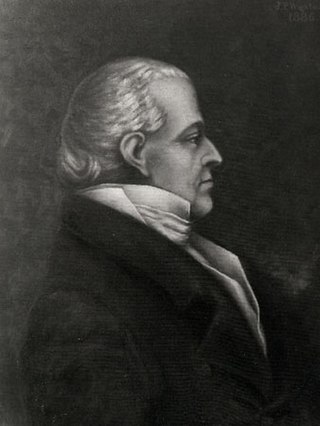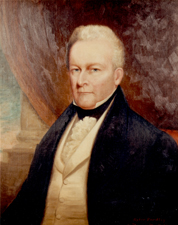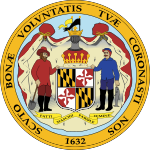
United States gubernatorial elections were held on November 7, 2006, in 36 states and two territories. The elections coincided with the midterm elections of the United States Senate and the United States House of Representatives.

The 1912–13 United States Senate elections were held on various dates in various states. They were the last U.S. Senate elections before the ratification of the Seventeenth Amendment in 1913, establishing direct elections for all Senate seats. Senators had been primarily chosen by state legislatures. Senators were elected over a wide range of time throughout 1912 and 1913, and a seat may have been filled months late or remained vacant due to legislative deadlock. Some states elected their senators directly even before passage of Seventeenth Amendment. Oregon pioneered direct election and experimented with different measures over several years until it succeeded in 1907. Soon after, Nebraska followed suit and laid the foundation for other states to adopt measures reflecting the people's will. By 1912, as many as 29 states elected senators either as nominees of their party's primary or in conjunction with a general election.

United States gubernatorial elections were held on November 5, 2002, in 36 states and two territories. The Republicans won eight seats previously held by the Democrats, as well as the seat previously held by Minnesota governor Jesse Ventura, who was elected on the Reform Party ticket but had since renounced his party affiliation. The Democrats won 10 seats previously held by the Republicans, as well as the seat previously held by Maine governor Angus King, an independent. The elections were held concurrently with the other United States elections of 2002.

The 1802–03 United States Senate elections were held on various dates in various states. As these U.S. Senate elections were prior to the ratification of the Seventeenth Amendment in 1913, senators were chosen by state legislatures. Senators were elected over a wide range of time throughout 1802 and 1803, and a seat may have been filled months late or remained vacant due to legislative deadlock. In these elections, terms were up for the senators in Class 1.
The 1966 Massachusetts general election was held on November 8, 1966, throughout Massachusetts. Primary elections took place on September 13.

The 2014 Wisconsin Fall General Election was held in the U.S. state of Wisconsin on November 4, 2014. Wisconsin's Governor, Lieutenant Governor, Attorney General, Secretary of State, and State Treasurer were all up for election, as well as Wisconsin's eight seats in the United States House of Representatives. The November general election in 2014 also featured a statewide referendum on an amendment to the Constitution of Wisconsin. The 2014 Wisconsin Fall Primary Election was held on August 12, 2014.

The 2022 United States attorney general elections were held on November 8, 2022, to elect the attorneys general in thirty states, two territories, and one federal district. The previous elections for this group of states took place in 2018. The attorney general of Vermont serves two-year terms and was last elected in 2020.

The 2022 Maryland Senate election were held on November 8, 2022, to elect senators in all 47 districts of the Maryland Senate. Members were elected in single-member constituencies to four-year terms. These elections were held concurrently with various federal and state elections, including for Governor of Maryland. The Democratic and Republican primaries were held on July 19, 2022.

A general election was held in the U.S. state of Louisiana on October 14, 2023, with second rounds held on November 18 where needed. Louisiana uses a two round system, where all candidates from all parties share the same ballot in the first round, and if no candidate wins an absolute majority, a runoff between the top two is held.

The 1801 Maryland gubernatorial election was held on 9 November 1801 in order to elect the Governor of Maryland. Democratic-Republican nominee and former member of the U.S. House of Representatives from Maryland's 2nd district John Francis Mercer was elected by the Maryland General Assembly against his opponent Federalist nominee James Murray.

The 1804 Maryland gubernatorial election was held on 20 November 1804 in order to elect the Governor of Maryland. Incumbent Democratic-Republican Governor Robert Bowie was easily re-elected by the Maryland General Assembly as he ran unopposed. The exact results of this election are unknown.

The 1805 Maryland gubernatorial election was held on 11 November 1805 in order to elect the Governor of Maryland. Incumbent Democratic-Republican Governor Robert Bowie was easily re-elected by the Maryland General Assembly as he ran unopposed. The exact results of this election are unknown.

The 1807 Maryland gubernatorial election was held on 9 November 1807 in order to elect the Governor of Maryland. Incumbent Democratic-Republican Governor Robert Wright was re-elected by the Maryland General Assembly against Federalist candidates former United States Senator Charles Carroll and former Governor John Eager Howard in a near rematch of the previous election.

The 1808 Maryland gubernatorial election was held on 14 November 1808 in order to elect the Governor of Maryland. Incumbent Democratic-Republican Governor Robert Wright was re-elected by the Maryland General Assembly against Federalist candidates former Governor Thomas Johnson, fellow former Governor John Eager Howard and former United States Senator Richard Potts.

The November 1809 Maryland gubernatorial election was held on 13 November 1809 in order to elect the Governor of Maryland. Incumbent Democratic-Republican Governor Edward Lloyd was re-elected by the Maryland General Assembly against Federalist candidates former United States Senator Charles Carroll, Levin Winder, Benjamin Stoddart and former Governor John Eager Howard.

The 1810 Maryland gubernatorial election was held on 19 November 1810 in order to elect the Governor of Maryland. Incumbent Democratic-Republican Governor Edward Lloyd was re-elected by the Maryland General Assembly against Federalist candidates former Governor John Eager Howard, Levin Winder and former United States Senator Charles Carroll.

The 1820 Maryland gubernatorial election was held on 11 December 1820 in order to elect the Governor of Maryland. Incumbent Democratic-Republican Governor Samuel Sprigg was re-elected by the Maryland General Assembly against former Federalist Governor Charles Goldsborough in a rematch of the previous election.

The 1821 Maryland gubernatorial election was held on 10 December 1821 in order to elect the Governor of Maryland. Incumbent Democratic-Republican Governor Samuel Sprigg was re-elected by the Maryland General Assembly against former Federalist Governor Charles Goldsborough, Democratic-Republican candidates John Leeds Kerr and George C. Washington and Federalist candidates Robert Goodloe Harper, Robert Henry Goldsborough, John Eager Howard, John C. Herbert and Roger B. Taney.

The 1823 Maryland gubernatorial election was held on 8 December 1823 in order to elect the Governor of Maryland. Incumbent Democratic-Republican Governor Samuel Stevens Jr. was re-elected by the Maryland General Assembly against former Federalist Governor Charles Goldsborough.

The 1824 Maryland gubernatorial election was held on 13 December 1824 in order to elect the Governor of Maryland. Incumbent Democratic-Republican Governor Samuel Stevens Jr. was re-elected by the Maryland General Assembly against former Federalist Governor Charles Goldsborough, Democratic-Republican candidate Roger B. Taney and Federalist candidates Robert Henry Goldsborough and John Eager Howard.
















